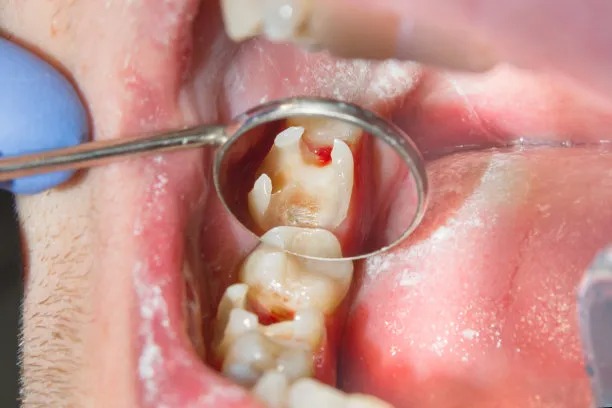Summary: Periodontal disease is more than just a dental issue; it significantly impacts overall health. This article explores the connections between periodontal disease and systemic health, highlighting its roles in chronic diseases, mental health, and quality of life. It also addresses effective prevention strategies and management techniques to enhance both oral and general well-being. By understanding these aspects, individuals can take proactive steps to maintain oral health, which in turn supports a healthier body and mind.
1. The Connection Between Periodontal Disease and Systemic Health

Periodontal disease has been extensively linked to several systemic health issues, making it crucial to understand its breadth of impact. Research indicates that bacteria from periodontal infections can enter the bloodstream, contributing to systemic conditions such as heart disease and diabetes. The inflammatory response triggered by periodontal disease can exacerbate these conditions, creating a vicious cycle of decline.
Furthermore, studies have shown a correlation between periodontal disease and respiratory infections. Individuals with poor oral health are more susceptible to inhaling bacteria from the mouth, potentially leading to pneumonia and other lung-related complications. This connection underscores the importance of maintaining good oral hygiene to prevent harmful systemic infections.
2. Periodontal Disease and Chronic Diseases
The relationship between periodontal disease and chronic conditions is well-documented. For instance, individuals with diabetes often experience more severe periodontal disease due to the body’s compromised ability to fight infections. In return, periodontal inflammation can lead to difficulties in managing blood sugar levels, presenting a dual challenge for those affected.
Additionally, cardiovascular diseases have been notably linked to poor periodontal health. Inflammation and bacteria from periodontal infections can contribute to plaque buildup in the arteries, leading to heart attacks or strokes. Therefore, managing periodontal health is essential for individuals at risk of cardiovascular issues.
Understanding these relationships emphasizes the importance of regular dental check-ups and maintaining oral hygiene practices. By addressing periodontal disease, individuals can potentially mitigate the risks associated with these chronic diseases, thereby improving their overall health trajectory.
3. Mental Health Implications of Periodontal Disease
The impact of periodontal disease extends into mental health, an often-overlooked area. Individuals suffering from chronic periodontal issues can experience a decline in their quality of life. The pain and discomfort associated with gum disease can lead to feelings of frustration and depression.
Furthermore, the cosmetic implications of periodontal disease—such as tooth loss or changes in appearance—can significantly affect self-esteem and social interactions. This can lead to social withdrawal, further exacerbating feelings of loneliness and depression.
Moreover, research suggests that maintaining good oral health can contribute positively to mental well-being. By prioritizing periodontal care, individuals may not only improve their oral hygiene but also enhance their self-image and overall mental health.
4. Strategies for Prevention and Effective Management
Effective prevention and management strategies for periodontal disease are essential in mitigating its health impacts. Regular dental visits for professional cleaning and check-ups are crucial as dental professionals can identify early signs of periodontal disease. Prompt treatment can significantly reduce the risk of progression.
Moreover, adopting a comprehensive home care routine is vital. Brushing at least twice a day, flossing daily, and using antiseptic mouthwash can help maintain optimal oral hygiene. Additionally, lifestyle changes such as improved diet and quitting smoking can also significantly lower the risk of developing periodontal disease.
Finally, educating oneself about the risks and implications of periodontal health can empower individuals to take control of their oral care. Awareness, combined with regular dental visits and proper home care, is the key to preventing periodontal disease and protecting overall health.
Summary:
Understanding the impact of periodontal disease on overall health reveals its significant implications for chronic illness, mental health, and quality of life. By implementing effective prevention strategies and managing oral health, individuals can foster a healthier lifestyle that integrates both oral and systemic well-being. The interconnections between oral health and overall health emphasize the importance of proactive dental care in achieving optimal health outcomes.
This article is compiled by Vickong Dental and the content is for reference only.
Vickong Dental
Vickong Dental is a large medical group established in Hong Kong in 2008 by professors from well-known medical universities in Guangdong and Hong Kong, as well as medical doctors from key national '985' universities (including Master's supervisors and senior professors). The chain of branches brings together expert dentists with PhDs and Master's degrees from Hong Kong and Mainland China, committed to providing high-quality dental treatment.
"Vickong Dental Practices the University Motto of 'Healing and Serving Society,' with a Stable Operation for Sixteen Years. It Has Been honored with Hong Kong Enterprise Leaders's Choice,' and is a Global Trusted Implant Center for the Nobel Implant System. Recommended by Hong Kong Metro Broadcast and Guangdong Television, it Serves Customers from Over Thirty Countries and Regions, Gaining the Trust and Favor of Citizens from the Guangdong-Hong Kong-Macau Greater Bay Area and Surrounding Cities.

Thousands of customers' unanimous praise
The most recognized and highly recommended dental service by customers in the Guangdong-Hong Kong-Macau Greater Bay Area
We Ensure You Receive Detailed Care and Attention Here
Hong Kong standards, Shenzhen prices, Your Trusted English-speaking dentists

Vickong Dental Medical-Grade Instrument Disinfection Process
Vickong Dental Medical-Grade Instrument Disinfection Process

Vickong Dental Chain: A Warm and Comfortable Environment for Treatment






Appointment Hours

Q&A
Why choose Vickong Dental?
Vickong Dental practices the university motto 「Medicine to Benefit Society」, with each branch bringing together highly qualified dentists with doctoral and master’s degrees from Hong Kong and the Mainland, and has maintained seventeen years of steady operation。Recipient of 「2024 Hong Kong Enterprise Leaders Brand」, 「2025 Hong Kong Enterprise Leaders Brand」, a Nobel Biocare Global Trusted Implant Center, and a brand recommended by Metro Radio Hong Kong and Guangdong TV。
To date, we have served customers from more than thirty countries and regions,earning exceptionally high word-of-mouth recognition and trusted recommendations from residents across the Guangdong-Hong Kong-Macao Greater Bay Area and surrounding cities
We have eight major branches in Zhuhai、Shenzhen,and a consultation and service assurance center in Hong Kong,so you can book a free consultation at any time for any questions,which is very reassuring.
If I do not accept the quotation after the CT scan, will I be charged??
No! As long as the actual treatment has not started, you will not be charged any fees.
Will there be any additional charges during the treatment process?
No, there won’t be any additional charges. Before treatment begins, we will clearly explain the treatment plan and its corresponding fees. Only after the patient agrees and signs the consent form will we proceed with the dental service.
Can I pay in Hong Kong dollars?
Yes. Vickong Dental accepts payment in Hong Kong dollars. The amount will be converted based on the exchange rate of the day, and the applicable rate will be clearly communicated to you in advance.
Can I reschedule my appointment at any time?
Yes. Please contact us via **WeChat** or **WhatsApp** as early as possible, providing your original appointment time and details, along with your preferred new date and time slot for rescheduling.













